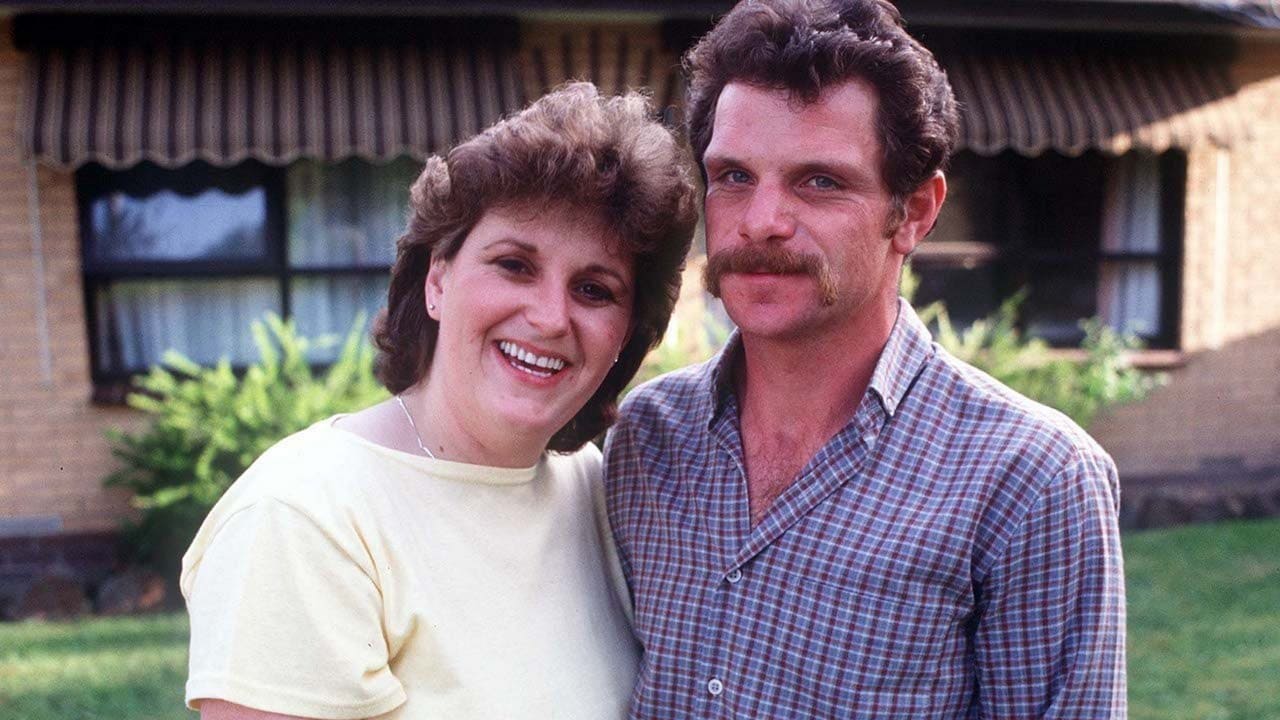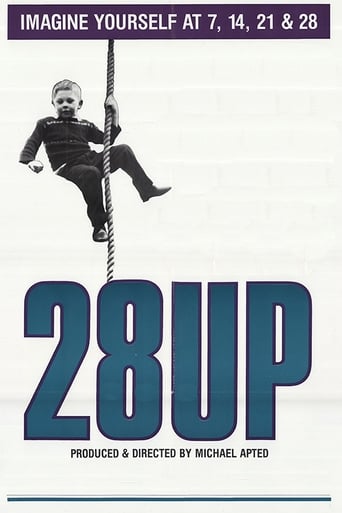PiraBit
if their story seems completely bonkers, almost like a feverish work of fiction, you ain't heard nothing yet.
Motompa
Go in cold, and you're likely to emerge with your blood boiling. This has to be seen to be believed.
Teddie Blake
The movie turns out to be a little better than the average. Starting from a romantic formula often seen in the cinema, it ends in the most predictable (and somewhat bland) way.
Brooklynn
There's a more than satisfactory amount of boom-boom in the movie's trim running time.
runamokprods
The 'Up Series' represents one of the most fascinating and unusual uses of film in cinema history - a documentary life-long chronicle of the lives of 14 people starting at 7 years old, revisiting them every seven years through age 49 (so far). While I could quibble, wishing for a bit more depth here and there (especially with the women, where there's a bit too much emphasis on love and marriage at the expense of all else), it's really an astounding, moving, frightening and uplifting document. There's no way to watch this remarkable series of films without reflecting deeply on one's own life, and how you have changed (and stayed the same) over your own lifetime. While Michael Aped deserves every bit of credit he's received for this amazing piece of cultural anthropology, it's important to note this first film, 7 Up,was actually directed by Paul Almond, and Apted was a that point a researcher for the project.
MisterWhiplash
In 28 Up, it seems like the 'the Man' part of the 'Give me a Child' bit that is quoted in every Up movie is starting to take shape, for the men and women. Or, at least, most of them. We see the gradual progression of life start to take shape: careers, over the course of the people's 20's, have been sought out, and they've gotten married and/or had children. Some, in fact, who weren't married before have been changed for the better it would seem by being married (i.e. Jackie), and some aren't living in Britain anymore (one is a physicist living in America with his wife, another has lived in Australia for quite a long time).The series in this 'episode' film centers around the real progress into adulthood, and how the interviewees now feel about how their lives, loves, careers have progressed. A given topic that comes up is how they think they've changed since being in the first film at seven, and the consensus, a strong one presented, is that a person is at least, potentially, there at the age, but needs to grow (like a seed). It's fascinating too to see how the children in groups have progressed about as expected, or with some relativity. For example the three boys, now adults, sitting in the same line (albeit one of them declined to be interviewed, ironic since he works for the BBC in 1985), one of whom a prissy, upper class citizen, and another not so much, based on hair-length perhaps.In general 28 Up seems to view the subjects as they would be naturally by this point as adults, and some, like the bricklayer, revealed how they might turn out when let loose in the 'playground' at age seven, some building a house and some, well, not (another fascinating subject like this is the former jockey turned cab driver). And yet a good deal of these subjects, at least for the moment of 28, look set for their life, either with a current wife or kids or a steady income at something they've worked for... which brings us to Neil. He's the one who, at 28, has no current prospects, who was happy as a child but now is disillusioned to the fact that he doesn't have a career or much of a life, but in a way is fine with that (he applied to Oxford, but didn't get in). He's the stark, fascinating contrast that gives 28 Up a great sense of depth. The class system in Britain, or just in how it sets up these kids, is revealed in the highs, mediums and lows of living, and Neil is certainly a low, but not feeling bad about it (at the least, he says, he can eat now, unlike some years before).
moonspinner55
Filmmaker Michael Apted's pet project for British television (released theatrically in several countries) is an occasionally fascinating, sometimes boring documentary which spans many years as Apted interviews a handful of British schoolchildren in the 1950s, catching up with them again eight years later and so on until the kids have reached the age of 25. For the sake of cinema, it is a shame that the subjects whom Apted initially chose for his portrait turned out to be such colorless personalities. There are a few tragedies which unfold with the heartrending beauty of fictional melodrama, yet this installment runs out of intriguing moments long before it is over. Apted is to be commended, nevertheless, for a brilliant cinematic idea. Followed in due time by "35 Up", "42 Up", "49 Up". **1/2 from ****
tedg
I got hooked on these. The first one was only mildly interesting, a sort of necessary toll. Everything of interest in it is repeated later, but it was a solid reference for the editions that followed. The next two editions were absolutely captivating.There's something about that period before you become an adult, a time when switches could flip, butterflies can affect. The conceit of the series is that the British class system is deterministic. So the game in the first films is in engaging with these people in support. We send wishes into the ether, attempting to reach across space and time. The don't grow up until we see them and when they are restricted, it is because of constraints we allow.Any failure at this stage, any flaw in character is in part our responsibility. So we experience a blizzard of minor successes and defeats. Each person is a collector of urges, each a measure of a successful or failed society. These two (14 up and 21 up) were engaging films.But by now, these are genuine adults. What errors in formation that could be influenced by our surrogate parenting have already set. Now they are simply beings. The only mildly engaging of these souls is Neil, a bum on the dole. Everyone else is no more now than someone ordinary that you encounter in life, each on their own path, working on narrow futures beyond our control.The major difference is that some have some things to claim over the others. Different things, but each presented in comparison. I wonder if I can stand the investment of what comes next.Following this, you are following Apted as he grows in skill, insight. What he looks for as signs of maturity. I hope he is up to the task. His other films seem to imply that he is one of the failures, that our urges, wishes, prayers didn't reach him.Ted's Evaluation -- 2 of 3: Has some interesting elements.

